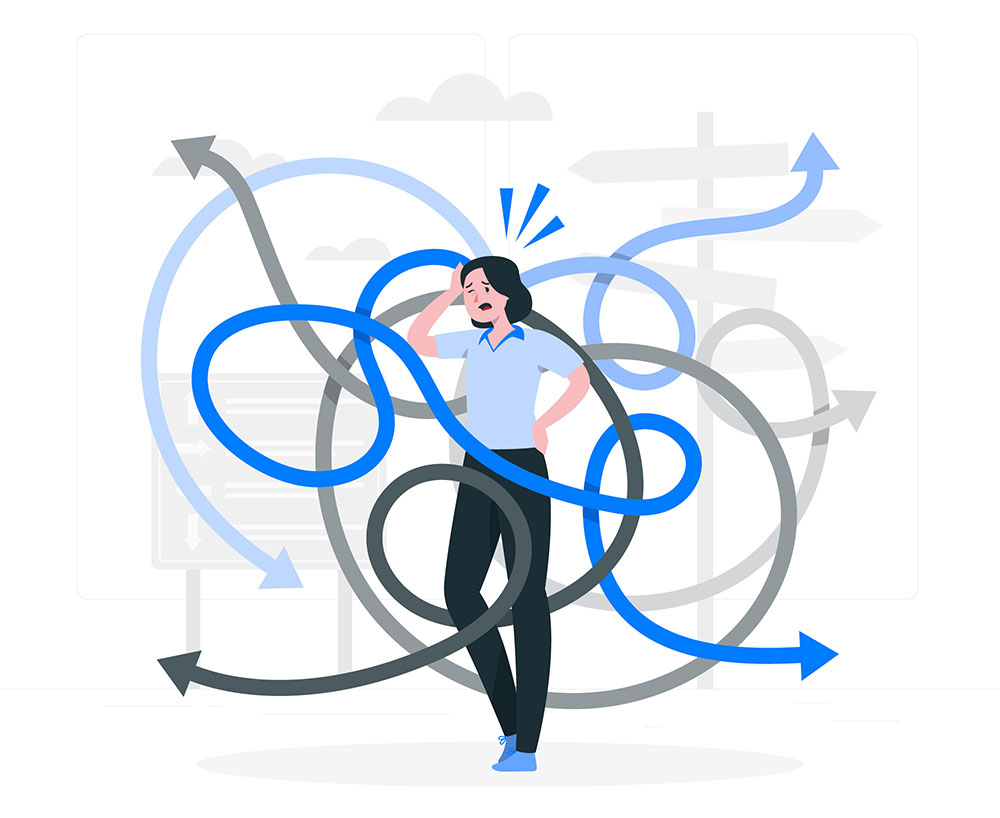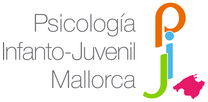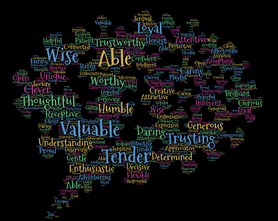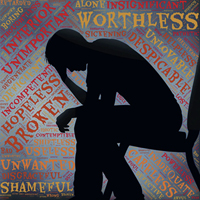
Do you consider yourself to have an Internal or External Locus of Control?
The locus of control is a concept developed by psychologist Julian Rotter in 1954. It refers to a person’s belief about the causes of the events that happen in their life. In other words, who or what has control over the events we experience? Ourselves or external factors?
Types of Locus of Control
Internal Locus of Control:
- People with an internal locus of control believe that the outcomes in their lives primarily depend on their own actions, skills, and decisions.
- These people believe they can influence or control what happens in their lives through their effort, talent, or choices.
Example: If a student gets a good grade on an exam, someone with an internal locus of control will think they achieved it thanks to their dedication and study. If they get a bad grade, they will think they didn’t prepare well enough and that they can improve in the future with more effort.
External Locus of Control:
- People with an external locus of control believe that the events in their lives are the result of factors beyond their control, such as fate, luck, the actions of others, or external circumstances.
- These individuals tend to feel powerless or unable to change their situation because they perceive external factors as determining the outcomes.
Example: If the same student with an external locus of control gets a bad grade, they might think it was due to bad luck, the professor’s negative attitude, or other factors beyond their control. If they get a good grade, they might attribute it to an easy exam or the luck being on their side.
→ Internal Locus of Control and Self-Esteem
People with an internal locus of control tend to have higher self-esteem because they feel responsible and competent in facing the challenges and outcomes of their lives. This type of locus implies that they largely believe that the events happening in their life depend on their personal effort, decisions, and skills. This sense of self-efficacy strengthens self-esteem because individuals see themselves as active agents who can influence their own destiny.
- Self-confidence: Since they perceive that they have control over the outcomes of their actions, people with an internal locus of control tend to have higher self-confidence. Believing that success and failure depend on their efforts generates a sense of competence and autonomy, two fundamental pillars of healthy self-esteem.
- Learning from failure: In adverse situations, people with an internal locus of control do not tend to see themselves as victims of chance or uncontrollable external factors. Instead of feeling powerless or defeated, they reframe failures as learning opportunities. This approach helps maintain high self-esteem because they understand that their mistakes are correctable and part of the personal growth process.
- On the other hand, if the failures attributed exceed in number, it may generate discomfort and emotional imbalance, potentially leading to serious problems. It’s important to maintain a balance in attributing failures (internal or external) to avoid damaging our self-esteem.
- Constructive self-criticism: While these individuals may be self-critical, they tend to do so constructively. They are able to identify areas for improvement without affecting their sense of personal worth. Instead of seeing themselves as “failures,” they view themselves as individuals who can improve and grow through effort.
- Responsibility and autonomy: A person with an internal locus of control has a proactive view of life and tends to take responsibility for their achievements and failures. This autonomy gives them a sense of control and satisfaction in life, which is closely related to high self-esteem.
Example of Relationship with Self-Esteem:
Imagine a person who, after being rejected from a job, reflects on their performance in the interview and wonders what they could improve for the next opportunity. They don’t feel defeated or accuse themselves of being incapable; on the contrary, they feel motivated to improve. This approach not only preserves their self-esteem but strengthens it by demonstrating their ability to learn and adapt.
→ External Locus of Control and Self-Esteem:
People with an external locus of control, on the other hand, believe that the events in their lives are the result of factors out of their control, such as fate, luck, the decisions of others, or even outside circumstances. This can negatively impact their self-esteem because they tend to feel that they have no control over what happens to them, leading to a sense of powerlessness or lack of personal effectiveness.
Characteristics and Relationship with Self-Esteem:
- Sense of powerlessness: People with an external locus of control may experience a lack of control over their lives, which can erode their self-esteem. If everything that happens is determined by external factors, they may feel like victims of circumstances and develop a pessimistic view of their ability to change their situation.
- Dependence on external approval: These individuals often seek validation and approval from others, as they feel that the recognition of their worth depends on external factors, such as the opinions of others or social context. This dependence can make their self-esteem more fragile and volatile since it is based on external and unstable factors.
- Frustration and hopelessness: If they don’t achieve the results they want, they may feel frustrated, as they tend to think they can’t do anything to change it. The idea that circumstances are unchangeable or that luck is against them can generate a sense of hopelessness and low self-esteem.
- Lack of self-compassion: By externalizing the results of their actions, people with an external locus of control may be more likely to be too hard on themselves for their “bad luck,” or conversely, they may avoid taking any responsibility for their mistakes. This can lead to a sense of disconnection from themselves and their personal worth, as they don’t see the link between their efforts and the results obtained.
Example of Relationship with Self-Esteem:
Suppose a person with an external locus of control faces difficulties in their career. If things don’t go well, they might think it was due to bad luck or because the market is in crisis, rather than reflecting on how to improve their skills or change their approach. This tendency to externalize failures, without taking responsibility or seeking active solutions, could lead to low self-esteem, as they don’t feel in control of either their actions or the results.
How Does Locus of Control Affect Self-Esteem in the long Term?
The interaction between locus of control and self-esteem is not static but dynamic. If a person maintains an external locus of control for long periods, this can have cumulative effects on their self-esteem, such as feelings of incompetence, isolation, and depression. On the other hand, a person who adopts an internal locus of control generally develops stronger resilience and a more robust self-esteem because they feel they have the ability to manage and modify their life. This sense of control fosters greater emotional well-being and allows them to face challenges with more optimism. If you’d like to learn more, I invite you to read this blog about self-esteem and how to improve it.
How to Work on Internal Locus of Control
Fostering an internal locus of control can be beneficial for psychological well-being and personal development. To work on it, several strategies can be followed:
- Increase personal awareness: Help the person identify their own strengths and abilities, so they realize that they have the power to influence their life.
- Encourage decision-making: Promote situations where the person can make decisions and experience the consequences of their choices, so they see the impact of their own actions.
- Reframe negative thoughts: Teach the person to recognize automatic thoughts that attribute problems to external factors, and help them think of solutions that depend on their own actions.
- Set realistic goals: Help the person set achievable goals and plan how to reach them, reinforcing the belief that they have control over their life.
- Challenge limiting beliefs: Question the idea that everything that happens is outside of personal control. Help the person analyze specific cases where they may have had an influence, even if it was small.
- Encourage resilience: Teach the person that failures are not the result of bad luck, but opportunities for learning and growth. Help them develop effective coping skills.
- Cognitive-behavioral therapy (CBT): CBT is very effective in working on the restructuring of dysfunctional thoughts, such as those associated with an external locus of control, helping the person change how they interpret events. At our institute, we are a team of psychologists working with CBT to help you in the process and offer the services we have available.
In summary, working on both internal and external locus of control can have a significant impact on a person’s self-esteem and overall well-being. Developing a greater perception of control over one’s actions and their consequences can lead to a more satisfying life and better handling of difficulties.

Arancha Lorente
Psychologist. Col Nº B-03674










